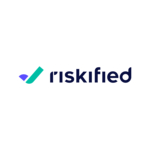 BUSINESS WIRE
BUSINESS WIRE

New research reveals the era of generous return and refund policies is over - 84% of merchants find abuse harder to detect, driven by new Dark Web “Robin Hoods” and GenAI
New Research Shows Consumers Pay the Price of Policy Abuse Epidemic As Retailers Worldwide Tighten Return and Refund Policies
Cristina Dinozo
Sr. Director of Communications
press@riskified.com
Chett Mandel
Head of Investor Relations
ir@riskified.com
Riskified (NYSE:RSKD), a leader in ecommerce fraud and risk intelligence, today published its “Returns, refunds & exchanges: Global insights and policy playbook 2024,” a thorough examination of returns and refunds operations at ecommerce enterprises worldwide and the impact of fraud and abuse on retailer policies. The study of seven major markets, including US, UK, France, DACH, Mexico, Brazil, and Australia / New Zealand, uncovered that returns, refunds, and exchanges constitute a staggering $394 billion expense for retailers, at least $28 billion of which is perceived to be impacted by fraud and abuse.
Policy abuse, in which consumers knowingly exploit or manipulate a merchant’s terms and conditions for personal gain, includes behaviors such as ordering multiple sizes and colors with the intent to return most items (“bracketing”), claiming “item not received” (INR) or “did not arrive” (DNR), returning an item as if unworn for full refund (“wardrobing”), and more.
Not only are regular consumers committing abuse, professional fraudsters are magnifying the challenge. Driven by information-sharing forums like “fraud-as-a-service" groups on the Dark Web and the availability of malicious generative artificial intelligence (GenAI) tools, fraud and abuse have become more prolific and sophisticated. Because of this, three in four online merchants say they feel overwhelmed by policy abuse, while 84% find it harder to detect abuse of their returns and refund policies.
Now, Riskified’s research reveals that many merchants are tightening up returns and refunds policies due to mounting costs and the high risk of fraud and policy abuse, a reversal from the generous and flexible policies online shoppers have come to expect and appreciate from their favorite retailers.
- One-third of retailers now charge a fee for returning an item.
- One-third of retailers are issuing exchange-only and store credit-only policies.
- Two in five online retailers now allow just seven days to file a claim. In contrast, brick-and-mortar stores have historically provided 30 days for returns, refunds, and exchanges.
Most merchants aren’t proactively tackling policy abuse, with only three of 10 merchants saying they have implemented a strategy to prevent fraudulent returns and refunds. Internal challenges contribute to this situation, such as lack of data integration between teams (26%), competing objectives between teams (25%), and lack of collaboration in general (24%). To alleviate this problem, merchants can adopt strategies such as a “sliding scale” return and refund policies based on customer value, using an identity-based technology approach to identify bad actors, or even banning serial refund and returns customers entirely.
“The pendulum has swung from generous return and refund policies of previous years to increasingly restrictive policies,” said Jeff Otto, CMO at Riskified. “Merchants are under pressure to cut costs, but if this correction is applied bluntly across all customers it creates a bad experience for high-value shoppers, stunting growth and loyalty. The good news is this problem can be addressed surgically with an identity-based technology approach that carefully assesses the right policy to implement across the spectrum of customers – maintaining generous policies to delight high-value customers, while cutting-off abusive identities at the point of purchase or claim.”
To produce this report, Riskified commissioned Opinium Research to interview over 500 senior directors with oversight of fraud, risk, and policy abuse at large ecommerce businesses spanning North and South America, Europe, and Australasia. In addition, the Center for Economics and Business Research (Cebr) layered economic modeling data and analysis to determine the direct and indirect costs of fraud and policy abuse on returns, refunds, and exchanges. Download “Returns, refunds & exchanges: Global insights and policy playbook 2024” via Riskified.com.
About Riskified
Riskified (NYSE:RSKD) empowers businesses to unleash ecommerce growth by outsmarting risk. Many of the world’s biggest brands and publicly traded companies selling online rely on Riskified for guaranteed protection against chargebacks, to fight fraud and policy abuse at scale, and to improve customer retention. Developed and managed by the largest team of ecommerce risk analysts, data scientists and researchers, Riskified’s AI-powered fraud and risk intelligence platform analyzes the individual behind each interaction to provide real-time decisions and robust identity-based insights. Riskified was named to CNBC's World’s Top Fintech Companies in 2024. Learn more at riskified.com.
View source version on businesswire.com: https://www.businesswire.com/news/home/20241009450520/en/


